HDL-C
How to submit an article:
- Registered users can submit any published journal article that has a unique DOI (Digital Object Identifier) name or link to Research Hub.
- For example, you can paste the full DOI link:
https://doi.org/10.1109/5.771073or just the DOI name:10.1109/5.771073into the field above and click submit. - The person who is first to submit a valid article to Research Hub will forever be credited for it, and every article submission earns you +6 Research Points.
Also known as: HDL, High-Density Lipoprotein
Related Topics
Published research studies are articles that present the findings of original research that has undergone a peer-review process and has been made publicly available in scholarly journals, books or other media.
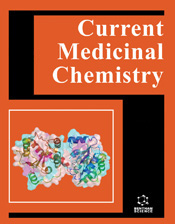
The Effects of Apple Cider Vinegar on Cardiometabolic Risk Factors: A Systematic Review and Meta-analysis of Clinical Trials
2023 Oct 11 Current Medicinal Chemistry Dadkhah Tehrani S, Keshani M, Rouhani MH, Moallem SA, Bagherniya M, Sahebkar A
Systematic Review Meta-Analysis Apple Cider Vinegar Blood Sugar Cholesterol HbA1CConsumption of apple cider vinegar significantly improves certain risk factors for cardiometabolic syndrome, notably fasting blood glucose, glycosylated hemoglobin, and total cholesterol.

The effects of pomegranate consumption on lipid profile in adults: A systematic review and meta-analysis
2023 Sep Journal of Functional Foods Bahari H, Rezaiian F, Goudarzi K, Nooshan Mirmohammadali S, Asbaghi O, sadat Hosseini kolbadi K, et al.
Systematic Review Meta-Analysis Cholesterol Triglyceride PomegranatePomegranate consumption positively affects triglycerides, low-density lipoprotein cholesterol, and high-density lipoprotein cholesterol levels.
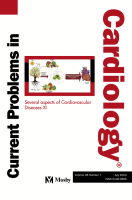
Effect of Oat (Avena sativa L.) Consumption on Lipid Profile With Focus on Triglycerides and High-density Lipoprotein Cholesterol (HDL-C): An Updated Systematic Review
2023 Jul Current Problems in Cardiology Amerizadeh A, Ghaheh HS, Vaseghi G, Farajzadegan Z, Asgary S
Systematic Review Triglyceride Cholesterol HDL-C OatsOat consumption can significantly improve lipid profiles, particularly reducing total cholesterol and LDL cholesterol, with potential positive effects on triglycerides and HDL cholesterol under certain conditions.
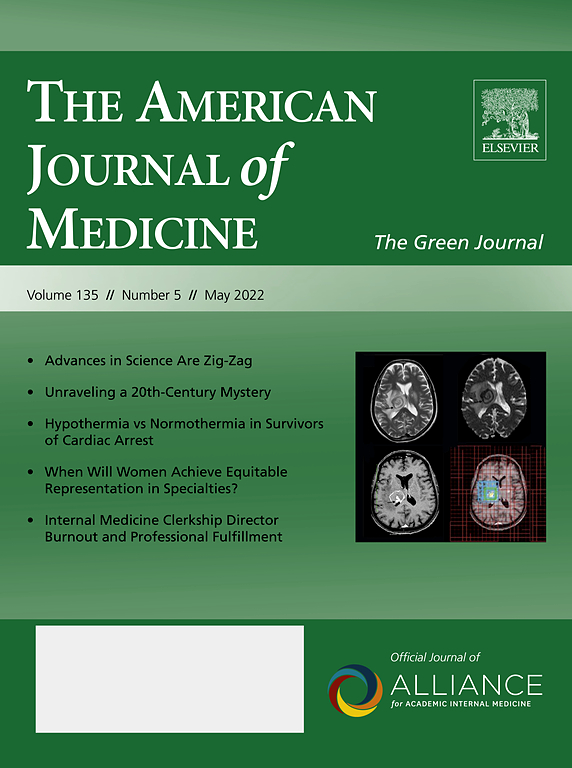
Association Between Cinnamon Consumption and Risk of Cardiovascular Health: A Systematic Review and Meta-Analysis
2022 Jan The American Journal of Medicine Krittanawong C, Isath A, Scott CZ, Wang Z, Kaplin S, Jneid H, et al.
Our meta-analysis suggests that there is no association between cinnamon consumption and differences in LDL-c, HDL-c, and hemoglobin A1C levels.
Systematic Review Meta-AnalysisMechanistic and therapeutic insight into the effects of cinnamon in polycystic ovary syndrome: a systematic review
2021 Oct 09 Journal of Ovarian Research Maleki V, Faghfouri AH, Tabrizi FPF, Moludi J, Saleh-Ghadimi S, Jafari-Vayghan H, et al.
Systematic Review Blood Sugar Triglyceride PCOS HDL-C LDLCinnamon supplementation may significantly enhance metabolic status in women with polycicstic ovary syndrome, notably improving high-density lipoprotein and insulin sensitivity, and decreasing low-density lipoprotein, triglyceride, and blood glucose levels.
Research insights are moderated by the Research Hub team and offer an at-a-glance overview of interesting research findings.

2023 Current Medicinal Chemistry
Consumption of apple cider vinegar significantly improves certain risk factors for cardiometabolic syndrome, notably fasting blood glucose, glycosylated hemoglobin, and total cholesterol.
Systematic Review Apple Cider Vinegar Blood Sugar Cholesterol HbA1C
The Effects of Apple Cider Vinegar on Cardiometabolic Risk Factors:
A Systematic Review and Meta-analysis of Clinical Trials
Dadkhah Tehrani S, Keshani M, Rouhani MH, Moallem SA, Bagherniya M, Sahebkar A

2023 Journal of Functional Foods
Pomegranate consumption positively affects triglycerides, low-density lipoprotein cholesterol, and high-density lipoprotein cholesterol levels.
Systematic Review Cholesterol Pomegranate Triglyceride
The effects of pomegranate consumption on lipid profile in adults: A systematic review and meta-analysis
Bahari H, Rezaiian F, Goudarzi K, Nooshan Mirmohammadali S, Asbaghi O, sadat Hosseini kolbadi K, et al.

2023 Current Problems in Cardiology
Oat consumption can significantly improve lipid profiles, particularly reducing total cholesterol and LDL cholesterol, with potential positive effects on triglycerides and HDL cholesterol under certain conditions.
Systematic Review Cholesterol Oats Triglyceride
Effect of Oat (Avena sativa L.) Consumption on Lipid Profile With Focus on Triglycerides and High-density Lipoprotein Cholesterol (HDL-C): An Updated Systematic Review
Amerizadeh A, Ghaheh HS, Vaseghi G, Farajzadegan Z, Asgary S
2021 Journal of Ovarian Research
Cinnamon supplementation may significantly enhance metabolic status in women with polycicstic ovary syndrome, notably improving high-density lipoprotein and insulin sensitivity, and decreasing low-density lipoprotein, triglyceride, and blood glucose levels.
Systematic Review Blood Sugar LDL PCOS Triglyceride
Mechanistic and therapeutic insight into the effects of cinnamon in polycystic ovary syndrome: a systematic review
Maleki V, Faghfouri AH, Tabrizi FPF, Moludi J, Saleh-Ghadimi S, Jafari-Vayghan H, et al.

2021 Phytotherapy Research
Pomegranate extract supplement shows potential in improving glycemic indicators, serum lipids, anthropometrics, and blood pressure in patients with nonalcoholic fatty liver disease.
Randomised Controlled Trial Blood Sugar Cholesterol Diastolic Blood Pressure Insulin Resistance Obesity
The effect of pomegranate extract on anthropometric indices, serum lipids, glycemic indicators, and blood pressure in patients with nonalcoholic fatty liver disease: A randomized double‐blind clinical trial
Goodarzi R, Jafarirad S, Mohammadtaghvaei N, Dastoorpoor M, Alavinejad P
Review Articles
Review articles summarise and critically evaluate the current state of research on a specific topic or field by synthesising multiple primary research studies.

The Effects of Apple Cider Vinegar on Cardiometabolic Risk Factors: A Systematic Review and Meta-analysis of Clinical Trials
2023 Oct 11 Current Medicinal Chemistry Dadkhah Tehrani S, Keshani M, Rouhani MH, Moallem SA, Bagherniya M, Sahebkar A
Systematic Review Meta-Analysis Apple Cider Vinegar Blood Sugar Cholesterol HbA1CConsumption of apple cider vinegar significantly improves certain risk factors for cardiometabolic syndrome, notably fasting blood glucose, glycosylated hemoglobin, and total cholesterol.

The effects of pomegranate consumption on lipid profile in adults: A systematic review and meta-analysis
2023 Sep Journal of Functional Foods Bahari H, Rezaiian F, Goudarzi K, Nooshan Mirmohammadali S, Asbaghi O, sadat Hosseini kolbadi K, et al.
Systematic Review Meta-Analysis Cholesterol Triglyceride PomegranatePomegranate consumption positively affects triglycerides, low-density lipoprotein cholesterol, and high-density lipoprotein cholesterol levels.

Effect of Oat (Avena sativa L.) Consumption on Lipid Profile With Focus on Triglycerides and High-density Lipoprotein Cholesterol (HDL-C): An Updated Systematic Review
2023 Jul Current Problems in Cardiology Amerizadeh A, Ghaheh HS, Vaseghi G, Farajzadegan Z, Asgary S
Systematic Review Triglyceride Cholesterol HDL-C OatsOat consumption can significantly improve lipid profiles, particularly reducing total cholesterol and LDL cholesterol, with potential positive effects on triglycerides and HDL cholesterol under certain conditions.

Association Between Cinnamon Consumption and Risk of Cardiovascular Health: A Systematic Review and Meta-Analysis
2022 Jan The American Journal of Medicine Krittanawong C, Isath A, Scott CZ, Wang Z, Kaplin S, Jneid H, et al.
Our meta-analysis suggests that there is no association between cinnamon consumption and differences in LDL-c, HDL-c, and hemoglobin A1C levels.
Systematic Review Meta-AnalysisMechanistic and therapeutic insight into the effects of cinnamon in polycystic ovary syndrome: a systematic review
2021 Oct 09 Journal of Ovarian Research Maleki V, Faghfouri AH, Tabrizi FPF, Moludi J, Saleh-Ghadimi S, Jafari-Vayghan H, et al.
Systematic Review Blood Sugar Triglyceride PCOS HDL-C LDLCinnamon supplementation may significantly enhance metabolic status in women with polycicstic ovary syndrome, notably improving high-density lipoprotein and insulin sensitivity, and decreasing low-density lipoprotein, triglyceride, and blood glucose levels.
Clinical Trials
Clinical trials are research studies that involve people and are conducted to evaluate the safety and efficacy of new treatments or interventions, such as drugs, medical devices, or behavioural therapies.

The effect of pomegranate extract on anthropometric indices, serum lipids, glycemic indicators, and blood pressure in patients with nonalcoholic fatty liver disease: A randomized double‐blind clinical trial
2021 Sep 08 Phytotherapy Research Goodarzi R, Jafarirad S, Mohammadtaghvaei N, Dastoorpoor M, Alavinejad P
Randomised Controlled Trial Obesity Pomegranate HDL-C Blood Sugar Triglyceride Insulin Resistance Cholesterol Diastolic Blood PressurePomegranate extract supplement shows potential in improving glycemic indicators, serum lipids, anthropometrics, and blood pressure in patients with nonalcoholic fatty liver disease.

The effect of concentrated pomegranate juice consumption on risk factors of cardiovascular diseases in women with polycystic ovary syndrome: A randomized controlled trial
2020 Aug 07 Phytotherapy Research Abedini M, Ghasemi‐Tehrani H, Tarrahi MJ, Amani R
Randomised Controlled Trial Cardiovascular Disease Pomegranate PCOSConcentrated pomegranate juice consumption can potentially lower cardiovascular disease risk factors in women with polycystic ovary syndrome.

A Randomized Placebo-Controlled Clinical Trial to Evaluate the Medium-Term Effects of Oat Fibers on Human Health: The Beta-Glucan Effects on Lipid Profile, Glycemia and inTestinal Health (BELT) Study
2020 Mar 03 Nutrients Cicero AFG, Fogacci F, Veronesi M, Strocchi E, Grandi E, Rizzoli E, et al.
Randomised Controlled Trial OatsDaily intake of 3 grams of oat beta-glucans significantly reduces LDL-Cholesterol, Total Cholesterol, and non-HDL-Cholesterol levels without impacting intestinal well-being or glucose levels.
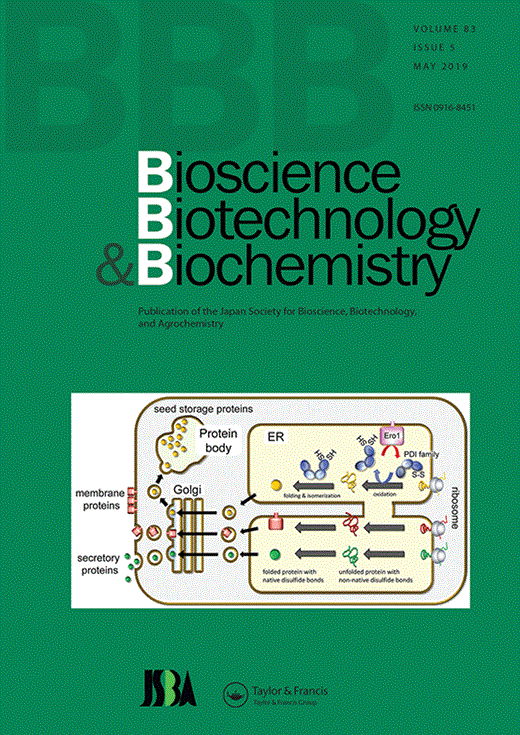
Safety and efficacy of adzuki bean extract in subjects with moderate to high LDL-C: a randomized trial
2019 May 04 Bioscience, Biotechnology, and Biochemistry Kitano-Okada T, Nagata R, Han KH, Mikami N, Satoh K, Nishihira J, et al.
Randomised Controlled Trial Adzuki Bean Cholesterol HDL-CAdzuki bean extract administered once a day can result in increased HDL-C concentration.
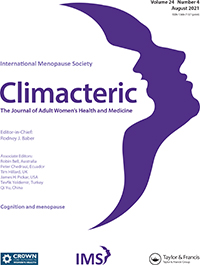
Improvement in HDL cholesterol in postmenopausal women supplemented with pumpkin seed oil: pilot study
2011 May 05 Climacteric Gossell-Williams M, Hyde C, Hunter T, Simms-Stewart D, Fletcher H, McGrowder D, et al.
Randomised Controlled Trial Postmenopausal Pumpkin Seed Oil HDL-C MenopausePumpkin seed oil supplementation may increase good cholesterol levels, lower diastolic blood pressure, and alleviate menopausal symptoms in postmenopausal women.
Study Protocols
Published study protocols are detailed plans that outline the objectives, methodology, statistical analyses, and organisation of a research study that have been made publicly available for others to review and use as a reference.
Presentation Slides

Systematic Review
Consumption of apple cider vinegar significantly improves certain risk factors for cardiometabolic syndrome, notably fasting blood glucose, glycosylated hemoglobin, and total cholesterol.
Dadkhah Tehrani S, Keshani M, Rouhani MH, Moallem SA, Bagherniya M, Sahebkar A

Systematic Review
Pomegranate consumption positively affects triglycerides, low-density lipoprotein cholesterol, and high-density lipoprotein cholesterol levels.
Bahari H, Rezaiian F, Goudarzi K, Nooshan Mirmohammadali S, Asbaghi O, sadat Hosseini kolbadi K, Naderian M, Hosseini A

Systematic Review
Oat consumption can significantly improve lipid profiles, particularly reducing total cholesterol and LDL cholesterol, with potential positive effects on triglycerides and HDL cholesterol under certain conditions.
Amerizadeh A, Ghaheh HS, Vaseghi G, Farajzadegan Z, Asgary S

Systematic Review
Cinnamon supplementation may significantly enhance metabolic status in women with polycicstic ovary syndrome, notably improving high-density lipoprotein and insulin sensitivity, and decreasing low-density lipoprotein, triglyceride, and blood glucose levels.
Maleki V, Faghfouri AH, Tabrizi FPF, Moludi J, Saleh-Ghadimi S, Jafari-Vayghan H, Qaisar SA

Randomised Controlled Trial
Pomegranate extract supplement shows potential in improving glycemic indicators, serum lipids, anthropometrics, and blood pressure in patients with nonalcoholic fatty liver disease.
Goodarzi R, Jafarirad S, Mohammadtaghvaei N, Dastoorpoor M, Alavinejad P

Systematic Review
Apple cider vinegar intake can significantly decrease total cholesterol and fasting plasma glucose levels contributing to better cardiovascular health among adults.
Hadi A, Pourmasoumi M, Najafgholizadeh A, Clark CCT, Esmaillzadeh A

Cohort Study
Moderate coffee consumption may potentially reduce the risk of low HDL-C and high fasting blood glucose amongst Korean male adults.
Tan LJ, Jeon HJ, Park SH, Kim SA, Lim K, Chung S, Chang PS, Lee J, Kang D, Shin S

Randomised Controlled Trial
Concentrated pomegranate juice consumption can potentially lower cardiovascular disease risk factors in women with polycystic ovary syndrome.
Abedini M, Ghasemi‐Tehrani H, Tarrahi MJ, Amani R
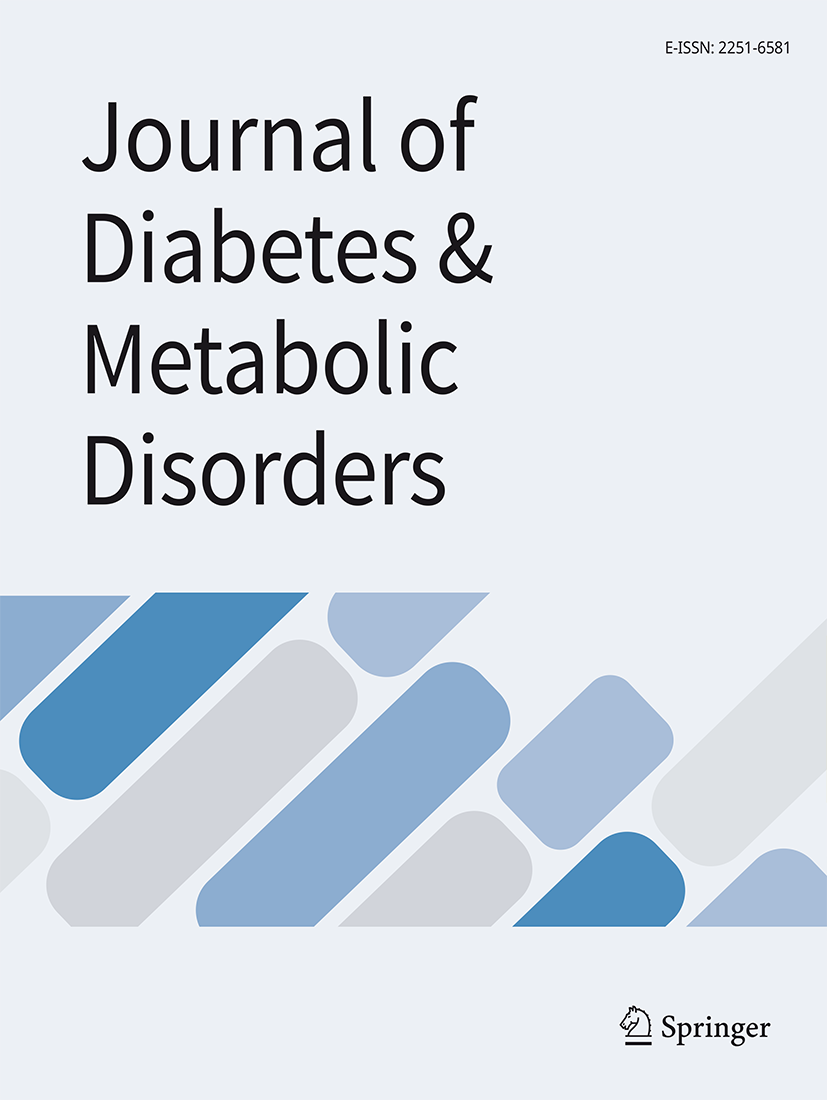
Systematic Review
Green coffee supplementation significantly decreases fasting blood sugar, insulin, and triglycerides while boosting high-density lipoprotein levels.
Morvaridi M, Rayyani E, Jaafari M, Khiabani A, Rahimlou M

Randomised Controlled Trial
Daily intake of 3 grams of oat beta-glucans significantly reduces LDL-Cholesterol, Total Cholesterol, and non-HDL-Cholesterol levels without impacting intestinal well-being or glucose levels.
Cicero AFG, Fogacci F, Veronesi M, Strocchi E, Grandi E, Rizzoli E, Poli A, Marangoni F, Borghi C

Systematic Review
Drinking certain types of mineral water can positively influence metabolic syndrome factors like blood pressure, cholesterol, and blood sugar levels.
Costa-Vieira D, Monteiro R, Martins MJ

Randomised Controlled Trial
Adzuki bean extract administered once a day can result in increased HDL-C concentration.
Kitano-Okada T, Nagata R, Han KH, Mikami N, Satoh K, Nishihira J, Sasaki K, Ohba K, Fukusima M

Experimental Study
Extract of pumpkin seeds displays estrogenic properties, potentially offering a solution to alleviate symptoms of menopausal syndromes resulting from estrogen deficiency.
Lestari B, Walidah Z, Utomo RY, Murwanti R, Meiyanto E

Systematic Review
Ginger supplementation has a favorable effect on levels of triacylglycerol and low-density lipoprotein cholesterol, especially in doses of 2 grams or less per day.
Pourmasoumi M, Hadi A, Rafie N, Najafgholizadeh A, Mohammadi H, Rouhani MH
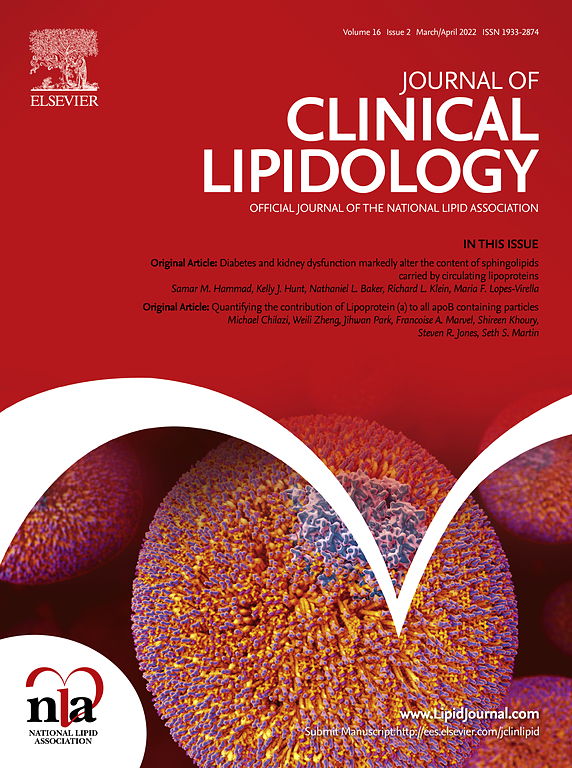
Systematic Review
Cinnamon supplementation significantly reduces blood triglycerides and total cholesterol levels without affecting low-density and high-density lipoprotein cholesterol.
Maierean SM, Serban MC, Sahebkar A, Ursoniu S, Serban A, Penson P, Banach M
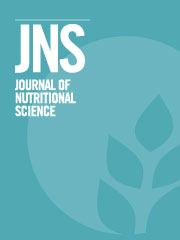
Systematic Review
Almond consumption effectively reduces blood lipid levels, thus reducing risk of heart disease.
Musa-Veloso K, Paulionis L, Poon T, Lee HY
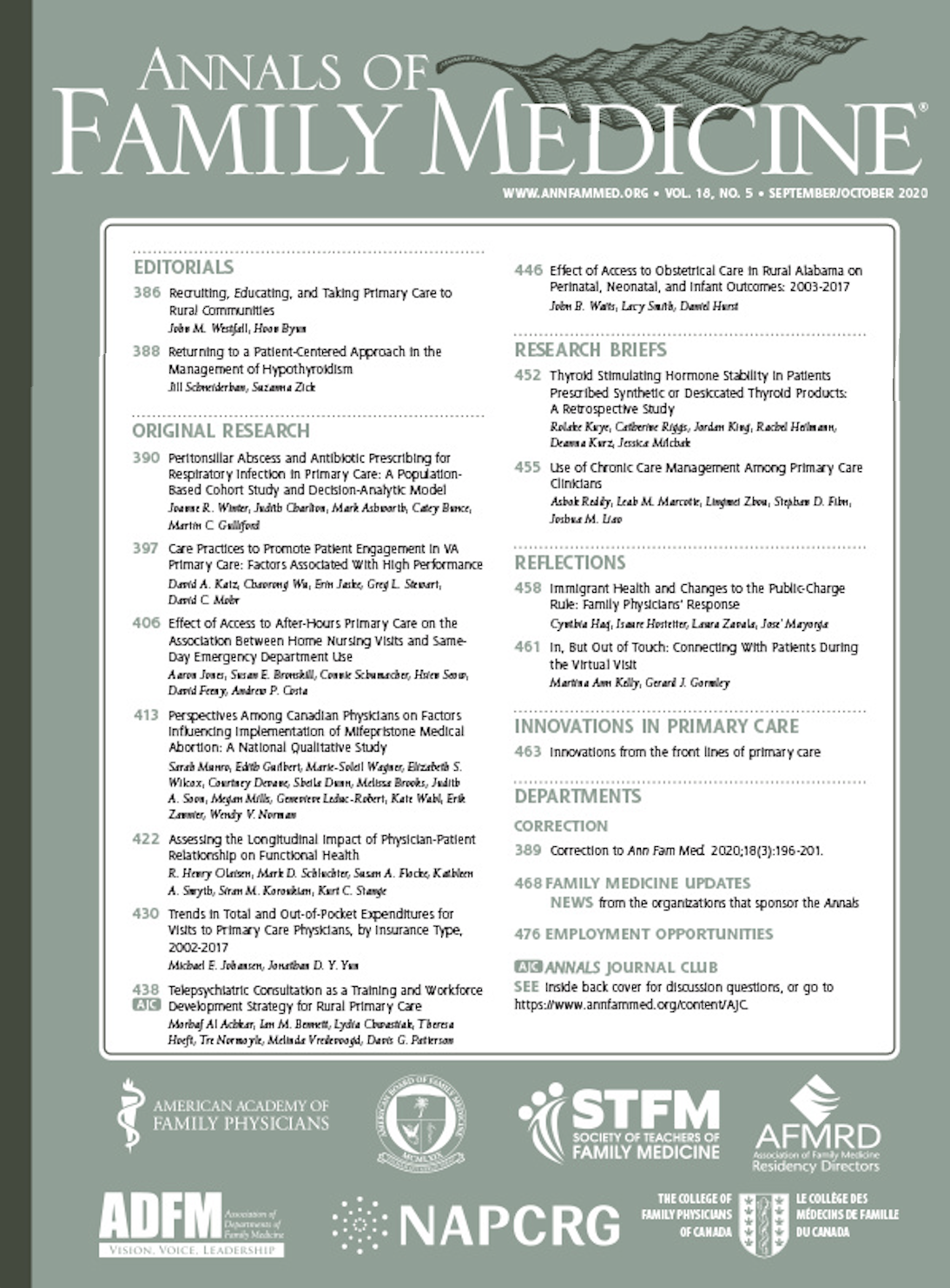
Systematic Review
The consumption of cinnamon is associated with a statistically significant decrease in levels of fasting plasma glucose, total cholesterol, LDL-C, and triglyceride levels, and an increase in HDL-C levels.
Robert W. Allen, Emmanuelle Schwartzman, William L. Baker, Craig I. Coleman and Olivia J. Phung

Randomised Controlled Trial
Pumpkin seed oil supplementation may increase good cholesterol levels, lower diastolic blood pressure, and alleviate menopausal symptoms in postmenopausal women.
Gossell-Williams M, Hyde C, Hunter T, Simms-Stewart D, Fletcher H, McGrowder D, Walters CA
Executive Summary
Write an executive summary in the form of a blog article on the topic of "Research into Chinese medicine treatment for HDL-C" summarising the research below and using language that can be easily understood by patients and avoiding medical jargon using a professional and caring tone of voice.
Write an executive summary in the form of a blog article on the topic of "Researched Chinese medicine treatments for HDL-C" summarising the research below in an objective and easy to understand way, and using language that can be easily understood by patients. Group the article into Chinese medicine treatments first, followed by nutrition and other treatments. Avoid using medical jargon and use a professional and caring tone of voice.
Write me a concise but easy to understand executive summary on the topic of "Chinese medicine treatments for HDL-C" based on the following research that I will give you. Your summary should be 2 paragraphs long in Australian English spelling and include references to the studies.
A Systematic Review published in 2023 in the journal Current Medicinal Chemistry found that Consumption of apple cider vinegar significantly improves certain risk factors for cardiometabolic syndrome, notably fasting blood glucose, glycosylated hemoglobin, and total cholesterol. This study applied a systematic review and meta-analysis of clinical trials found in PubMed, Scopus, and ISI Web of Science databases. In this process, trials evaluating the effects of apple cider vinegar consumption on cardiometabolic syndrome risk factors were sought. In total, 25 clinical trials were included in the study, these trials encompassed 1320 adult participants. The consumed apple cider vinegar led to a general improvement in fasting blood glucose, glycosylated hemoglobin, and total cholesterol. However, for body mass index, insulin resistance, serum insulin, triglycerides, low-density lipoprotein cholesterol, and high-density lipoprotein cholesterol, no significant results were observed. Conducting a subgroup analysis, the study identified a significant decrease in fasting blood glucose, glycosylated hemoglobin, total cholesterol, and triglycerides in diabetic patients. Further, it was observed that the apple cider vinegar significantly reduced fasting blood glucose levels regardless of the duration of administration and also decreased triglycerides concentration when consumed for 12 weeks or more.
A Systematic Review published in 2023 in the journal Journal of Functional Foods found that Pomegranate consumption positively affects triglycerides, low-density lipoprotein cholesterol, and high-density lipoprotein cholesterol levels. To investigate the impact of pomegranate on lipid profiles, a comprehensive database search was completed up until June 2023, aiming to identify related trials. Statistically, the researchers employed the estimated 95% confidence and the weighted mean difference to measure the variables, including triglycerides, total cholesterol, high-density lipoprotein cholesterol, and low-density lipoprotein cholesterol. They employed a random-effects model for their analysis. The meta-analysis revealed that pomegranate intake significantly reduces triglyceride levels. Still, it doesn't notably alter the total cholesterol concentrations. Additionally, consuming pomegranate seemed to have a diminishing impact on low-density lipoprotein cholesterol levels and an enhancing effect on high-density lipoprotein cholesterol levels.
A Systematic Review published in 2023 in the journal Current Problems in Cardiology found that Oat consumption can significantly improve lipid profiles, particularly reducing total cholesterol and LDL cholesterol, with potential positive effects on triglycerides and HDL cholesterol under certain conditions. In the methodology of this review study, information was gathered from various databases, including PubMed, Web of Science, and Google Scholar. The gathered data consisted of a total of 17 studies that explored the direct effects of oat consumption on lipid profiles. The focus of the studies included were the impacts of oat on levels of total cholesterol, VLDL, LDL-C, TG, and HDL-C. The review was meticulous, with a detailed examination of each study, particularly those showing positive effects of oat/beta-glucan consumption on triglycerides. The review's results revealed that oat intake significantly reduces the levels of total cholesterol, VLDL, and LDL-C. The effect of oat ingestion on triglyceride levels was varied; of the 17 studies, 6 reported a decrease in triglycerides. Interestingly, one study showed an improvement in HDL-C levels following oat consumption. It was also observed that oat intake might effectively reduce triglycerides in healthy individuals and overweight people or those with diabetes or metabolic syndrome, especially when larger amounts of oat were consumed over a longer duration or in conjunction with a calorie-reducing diet. The use of oat together with certain dietary programs was suggested to potentially enhance its positive effects on lipid profiles.
A Systematic Review published in 2021 in the journal Journal of Ovarian Research found that Cinnamon supplementation may significantly enhance metabolic status in women with polycicstic ovary syndrome, notably improving high-density lipoprotein and insulin sensitivity, and decreasing low-density lipoprotein, triglyceride, and blood glucose levels. The systematic review employed a PICO framework where the population was subjects with polycystic ovary syndrome (PCOS), the intervention was oral cinnamon supplement, the comparison group was either a control or a placebo group, and the outcome measured were changes in inflammatory, oxidative stress, lipid profile, glycemic, hormonal and anthropometric parameters, and ovarian function. To gather relevant research studies, databases including PubMed, Scopus, EMBASE, ProQuest, and Google Scholar were searched right from their inception until January 2020 using specific, relevant keywords. Out of the initial 266 studies found, only nine met the criteria for evaluation. The types of studies considered for this review included all clinical trials, animal studies, and english-language journal studies. The results showed a promising improvement in metabolic status in PCOS patients with cinnamon supplementation. This was shown through increased high-density lipoprotein and insulin sensitivity, and a decrease in low-density lipoprotein, triglyceride, and blood glucose levels in these patients. However, the impact of cinnamon on body weight and body mass index was inconsistent across the studies. Similarly, while the studies showed improved results regarding the effects of cinnamon on oxidative stress and ovarian function, the specific mechanisms behind these effects still need to be fully elucidated. Future studies should focus on observing clinical changes after cinnamon supplementation in PCOS through clinical trials with higher doses of cinnamon and a longer duration of intervention.
A Randomised Controlled Trial published in 2021 in the journal Phytotherapy Research found that Pomegranate extract supplement shows potential in improving glycemic indicators, serum lipids, anthropometrics, and blood pressure in patients with nonalcoholic fatty liver disease. The study involved 44 patients who had been diagnosed with nonalcoholic fatty liver disease. These individuals were randomly assigned to two groups, with one group receiving two pomegranate extract tablets daily over a period of 12 weeks, and the other a placebo. The researchers measured anthropometric values, serum lipid levels, blood pressure, and glycemic indicators before and after the intervention. In their analysis of the outcomes, the researchers found that the group which received the pomegranate extract showed reductions in total cholesterol, triglyceride levels, the ratio of low-density lipoprotein cholesterol to high-density lipoprotein cholesterol, fasting blood sugar, resistance to insulin, diastolic blood pressure, weight, body mass index, and waist circumference when compared to the placebo group. Additionally, an increase in serum high-density lipoprotein cholesterol was observed within the pomegranate group, indicating the potential utility of this supplement in a treatment regimen for this condition.
A Systematic Review published in 2021 in the journal BMC Complementary Medicine and Therapies found that Apple cider vinegar intake can significantly decrease total cholesterol and fasting plasma glucose levels contributing to better cardiovascular health among adults. The research process involved a thorough examination of electronic databases such as Medline, Scopus, Cochrane Library, and Web of Knowledge, from their creation until January 2020. The goal was to discover any clinical trial that explored the influence of apple cider vinegar (ACV) on lipid profiles and glycemic indicators. Studies where ACV was combined with other interventions or where the intervention duration was less than two weeks were excluded. To manage the differences between studies, a random-effects model was applied during the meta-analysis process comprising nine studies, including ten study arms. ACV use demonstrated a remarkable decrease in total cholesterol and fasting plasma glucose (FPG) levels. However, there wasn't a noticeable impact observed on LDL-C, HDL-C, fasting insulin concentrations, or HOMA-IR serum levels. When analyzed further, it was found that a reduction in serum TC and TG occurred in a patient subgroup with type 2 diabetes, those who consumed less than or equal 15 mL/day of ACV, and those who consumed it for over 8-weeks. Consequently, a significant decrease in FPG levels was found in studies where participants consumed ACV for more than 8 weeks. Interestingly, FPG and HDL-C levels appeared to increase in participants who were otherwise healthy.
A Cohort Study published in 2021 in the journal Nutrients found that Moderate coffee consumption may potentially reduce the risk of low HDL-C and high fasting blood glucose amongst Korean male adults. The study was designed to evaluate the link between coffee intake and the onset of metabolic syndrome, utilizing participant data sourced from the Health Examinees study. Metabolic Syndrome was identified based on the criteria set by the Adult Treatment Panel III of the National Cholesterol Education Program. The researchers deployed a multivariate Cox proportional hazards regression model to examine the relationship between different levels of coffee consumption and the incidence of metabolic syndrome. In the analysis of the results, moderate coffee consumption, approximately 1-3 cups per day, in male participants was found to have an inverse correlation with low high-density lipoprotein cholesterol (HDL-C) and high fasting blood glucose. More so, this inverse correlation was further observed with the consumption of 3-in-1 coffee, which includes sugar and creamer. This suggests that male habitual coffee drinkers may be less likely to experience low HDL-C and high fasting blood glucose, key markers of metabolic syndrome.
A Randomised Controlled Trial published in 2020 in the journal Phytotherapy Research found that Concentrated pomegranate juice consumption can potentially lower cardiovascular disease risk factors in women with polycystic ovary syndrome. The study used a randomized clinical approach, enrolling 44 women identified with polycystic ovary syndrome, aged 18 to 40 years and above a certain body weight index. These participants were randomly divided into two groups: one group was given concentrated pomegranate juice (CPJ), while the other served as a control. Both groups were monitored over a period of 8 weeks, with baseline measurements taken for anthropometric measures, blood pressure, and biochemical parameters set at the onset and then compared at the end of the trial. Upon completion, the group that consumed CPJ showed reductions in blood pressure and serum triglyceride levels — a known risk factor for cardiovascular diseases. There was also an increase in the amount of high density lipoprotein-cholesterol (good cholesterol) and a decrease in the triglyceride to high-density lipoprotein-cholesterol ratio. However, an increase was observed in levels of low-density lipoprotein-cholesterol (bad cholesterol). No adverse events or complications arose from CPJ consumption during the study period.
A Systematic Review published in 2020 in the journal Journal of Diabetes & Metabolic Disorders found that Green coffee supplementation significantly decreases fasting blood sugar, insulin, and triglycerides while boosting high-density lipoprotein levels. In methodology, a comprehensive literature review was carried out across PubMed, Embase, Scopus, and the Web of Science databases until October 2019. The objective was to scrutinize all randomized controlled trials of the impact of green coffee supplementation on various cardio metabolic risk factors in adults. These risk factors included fasting blood sugar, insulin, triglycerides, high and low-density lipoproteins and C-reactive protein. Data was then extracted from the relevant studies for analysis. From the selected 27 studies for final analysis, the pooled results depicted that green coffee supplementation had a significant effect in reducing fasting blood sugar, insulin, and triglyceride levels. In addition, it was found to increase the levels of high-density lipoprotein. Conversely, it was determined that the supplementation did not lead to any notable changes in the Homeostatic Model Assessment for Insulin Resistance, low-density lipoprotein and C-reactive protein levels.
A Randomised Controlled Trial published in 2020 in the journal Nutrients found that Daily intake of 3 grams of oat beta-glucans significantly reduces LDL-Cholesterol, Total Cholesterol, and non-HDL-Cholesterol levels without impacting intestinal well-being or glucose levels. The BELT Study was a double-blind, placebo-controlled, cross-over randomized clinical trial conducted over 8 weeks. It involved 83 Italian subjects with moderate hypercholesterolemia, who had low cardiovascular risk and followed a Mediterranean diet. The participants were administered either 3g/day of oat beta-glucans or a placebo. The results indicated that beta-glucans significantly reduced LDL-C, TC, and non-HDL-C levels in participants from both the baseline and the 4 and 8-week marks. However, no notable impact was observed on fasting plasma glucose or self-perceived intestinal well-being. These outcomes remained consistent irrespective of whether the subjects were given the beta-glucans or the placebo.
A Systematic Review published in 2019 in the journal Nutrients found that Drinking certain types of mineral water can positively influence metabolic syndrome factors like blood pressure, cholesterol, and blood sugar levels. This review examined 20 studies sourced from PubMed, Scopus, and Google Scholar on how mineral water consumption affects metabolic syndrome (MetSyn) features. The studies varied in their approach, including the type and composition of mineral water, the amount consumed, dietary factors, and study duration. Both human and animal studies were included, with diverse population sizes and characteristics. The research focused on several MetSyn aspects: blood pressure (BP), total triglycerides, HDL-cholesterol, glucose levels, and waist circumference (WC). The review found that certain types of mineral water had beneficial effects on blood pressure, total triglycerides, HDL-cholesterol, and glucose levels, although no significant influence on waist circumference was reported. The presence of specific minerals, elements, and active ions or molecules in the water, along with their pH levels, appeared crucial in counteracting metabolic dysfunctions and the increased acid load in diets associated with MetSyn. The studies discussed various molecular and physiological mechanisms behind these effects. However, further research is needed to fully understand the mechanisms by which mineral water consumption might protect against MetSyn features.
A Randomised Controlled Trial published in 2019 in the journal Bioscience, Biotechnology, and Biochemistry found that Adzuki bean extract administered once a day can result in increased HDL-C concentration. This finding suggests that adzuki bean polyphenols are a novel food ingredient capable of maintaining lipid homeostasis by modulating the HDL-C levels, without causing any adverse effects. This short-term study represents the first step in establishing the practicality, safety, and HDL-C-maintaining effects of adzuki bean extract in subjects with moderate-to-high LDL-C levels.
A Experimental Study published in 2019 in the journal Phytotherapy Research found that Extract of pumpkin seeds displays estrogenic properties, potentially offering a solution to alleviate symptoms of menopausal syndromes resulting from estrogen deficiency. In the study, scientists conduct in vitro analysis using a colorimetric-based assay on kidney cells derived from Chinese hamsters. Furthermore, they perform in vivo experiments involving 7-week old female rats that were specially prepared to model menopausal conditions. These rats are split into differing groups, each receiving a different dosage of pumpkin seed extract. Other observable parameters include uterine weight, condition of mammary glands, serum lipid levels, and bone density measured after a period of 30 days. The researchers also utilize a computer-based technique called molecular docking to investigate how certain active compounds in the pumpkin seed extract respond to estrogen receptors. Separately, this study indicates the pumpkin seed extract's positive impact on uterine weight and mammary gland health in rats, demonstrating properties similar to the hormone 17β-estradiol. Additionally, consumption of the extract led to improved lipid profile - with increased levels of good cholesterol and decreased bad cholesterol- and improved bone density. The study suggests that these beneficial results align with the growth of bone-building cells and decrease in bone-resorbing cells. The digital validation confirms the strength of interactions between active compounds found in the extract and the estrogen receptors.
A Systematic Review published in 2018 in the journal Phytomedicine found that Ginger supplementation has a favorable effect on levels of triacylglycerol and low-density lipoprotein cholesterol, especially in doses of 2 grams or less per day. Systematic searches were conducted on various databases including PubMed, Scopus, Science Direct, ISI Web of Science and Google Scholar until May 2017. The aim was to locate clinical trials examining the effect of ginger supplementation on lipid parameters in adults. Information relating to blood lipid means and potential sources of heterogeneity was extracted. Subgroup analysis was further conducted to identify potential sources of inter-study heterogeneity. In total, the meta-analysis included data from 12 trials involving 586 participants. The pooled analysis indicated that ginger supplementation led to reductions in triacylglycerol and low-density lipoprotein cholesterol. Ginger, however, revealed no significant changes in total cholesterol and high-density lipoprotein cholesterol. It was noted that a high degree of inter-study heterogeneity existed. Therefore, studies were further classified based on the dosage of ginger used. Stratification showed significant reductions in total cholesterol and triacylglycerol in those studies using doses of 2 grams or less of ginger per day. Conversely, such an effect was not observed in trials that used doses greater than 2 grams of ginger. There also wasn't any significant alteration in low-density lipoprotein or high-density lipoprotein cholesterol noted in studies irrespective of ginger dosage.
A Systematic Review published in 2017 in the journal Journal of Clinical Lipidology found that Cinnamon supplementation significantly reduces blood triglycerides and total cholesterol levels without affecting low-density and high-density lipoprotein cholesterol. The study's methodology included the systematic review and evaluation of 13 randomized controlled trials involving 750 participants. These trials examined the impact of cinnamon supplementation on blood lipid concentrations. The researchers performed a meta-analysis employing random effect models and calculated weighted mean differences for endpoints using a random effects model too. The results of the study indicated no substantial effect of cinnamon on low-density lipoprotein cholesterol (LDL-C) and high-density lipoprotein cholesterol (HDL-C) concentrations. However, a significant decrease in blood triglycerides and total cholesterol concentrations was observed. Furthermore, in a meta-regression analysis, no notable association was found between changes in lipid parameters and the dosage of cinnamon. However, changes in total cholesterol, LDL-C, and triglycerides were positively linked with the duration of supplementation.
A Systematic Review published in 2016 in the journal Journal of Nutritional Science found that Almond consumption effectively reduces blood lipid levels, thus reducing risk of heart disease. The researchers carried out a systematic review and meta-analysis drawing on data from controlled randomised trials. Their search of the scientific literature led them to a total of eighteen relevant publications and twenty-seven datasets, which offered a comparison between almond consumption and a control group. They then unified the studies by pooling the mean differences in the effects on each blood lipid parameter using a random-effects model. The analysis found that consuming almonds had a marked beneficial effect on levels of total cholesterol, LDL-cholesterol and TAG (triacylglycerol). However, it did not significantly affect HDL-cholesterol levels. This supports data from previous observational and large-scale interventional studies that showed nut consumption reduces the risk of heart disease. This goes to show that including nuts in a balanced diet is advisable for maintaining healthy blood lipid levels and preventing heart disease.
A Systematic Review published in 2014 in the journal Annals of Family Medicine found that The consumption of cinnamon is associated with a statistically significant decrease in levels of fasting plasma glucose, total cholesterol, LDL-C, and triglyceride levels, and an increase in HDL-C levels. To put the results of our meta-analysis into better context, the reductions found can be compared with established therapies. As an example, the reductions in fasting plasma glucose levels (−24.59 mg/dL) are less than those achieved by metformin monotherapy (−58 mg/dL) and somewhat more than the newer oral agents, such as sitagliptin (−16 to −21 mg/dL). Our results showed cinnamon to reduce LDL-C and triglyceride levels by approximately 9.4 and 29.6 mg/dL, respectively. As a comparison, the lipid-lowering drugs pravastatin and gemfibrozil reduce LDL-C and triglyceride levels by approximately 50 mg/dL (26%) and 50 mg/dL (31%), respectively. Based on currently available literature, cinnamon may have a beneficial effect on fasting plasma glucose, LDL-C, HDL-C, and triglyceride levels in patients with type 2 diabetes. There is no statistically significant effect on hemoglobin A1c, however. Caution should be exercised in applying the results of this analysis to patient care because of the certainty of the dose and duration of cinnamon use and uncertainty of the ideal patient population.
A Randomised Controlled Trial published in 2011 in the journal Climacteric found that Pumpkin seed oil supplementation may increase good cholesterol levels, lower diastolic blood pressure, and alleviate menopausal symptoms in postmenopausal women. In this pilot study employing a randomized, double-blinded and placebo-controlled design, 35 women that were either naturally menopausal or had prematurely entered menopause due to benign surgical intervention partook. Over the span of 12 weeks, participants received either pumpkin seed oil or wheat germ oil (serving as the placebo) at a dosage of 2 grams daily. Measurements of serum lipids, fasting plasma glucose, blood pressure and completion of a questionnaire regarding menopausal symptoms were taken before and after the supplementation period, and changes across these factors were evaluated. Following supplementation, women who received pumpkin seed oil displayed increased concentrations of high density lipoprotein cholesterol (commonly known as good cholesterol) and a reduction in diastolic blood pressure. Additionally, there was a notable decline in the severity of menopausal symptoms, including hot flushes, headaches, and joint pain, thanks to this supplementation. Contrarily, symptoms of depression and feelings of being unloved heightened among women in the group that received wheat germ oil.
Moderation Tools
Topic
Sign In
Users not signed in are limited to viewing the 5 most recent items of content.